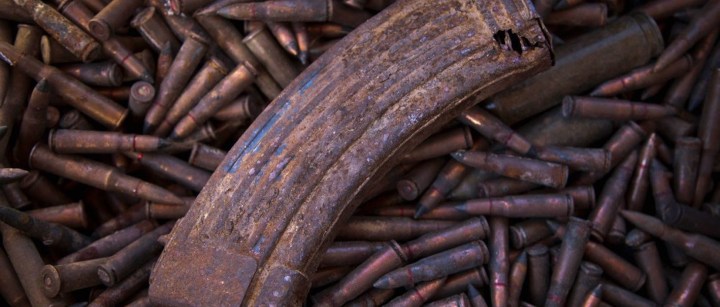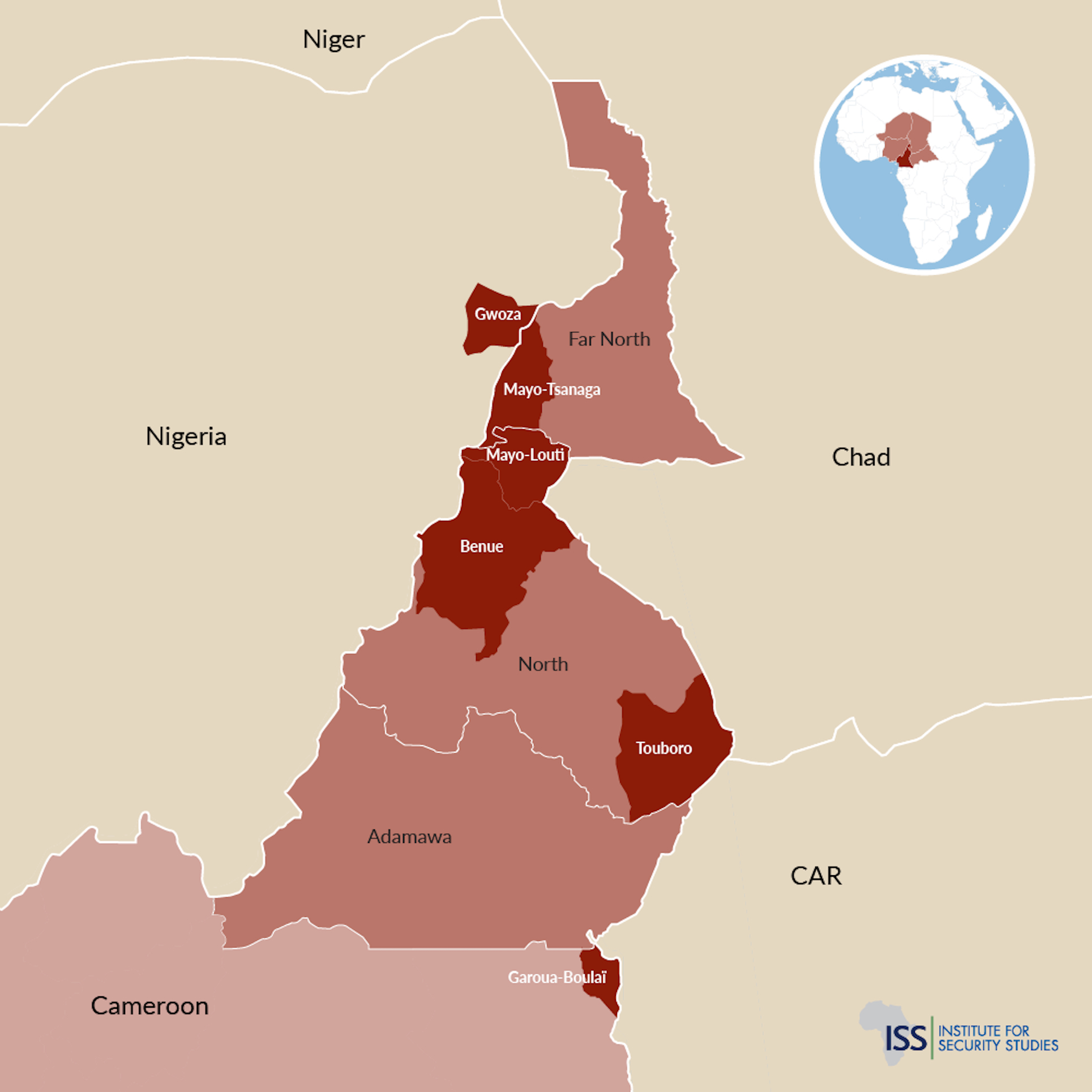ISS TODAY OP-ED
Gun-running hub – Northern Cameroon is losing the battle against trafficking

Surrounded by countries in conflict, the cross-border area has become a hub for gun running.
Northern Cameroon has for decades been a hub for ammunition, small arms and light weapons trafficking in the Sahel. The problem has fuelled regional insecurity since 1980. In response, states of the Lake Chad Basin Commission created the Multinational Joint Task Force in 1994.
But arms trafficking has worsened since Boko Haram’s emergence and expansion into Cameroon in 2013. In the past decade, Cameroon’s defence forces have seized and destroyed more than 3,000 weapons and items of military equipment.
Northern Cameroon covers the Far North, North and Adamawa regions, which form part of the Sahelian belt. This part of Cameroon shares borders with Nigeria, Chad and the Central African Republic (CAR), and experiences a lot of smuggling and trafficking.
Due to various insurrections, Nigeria has become fertile ground for the manufacture of homemade weapons. In Chad, numerous conflicts since the 1970s – including rebellions and reversals of political power – have led to a proliferation of small arms.
Weapons pass through corridors used for illicit trade, migratory flows and transhumance.
Coupled with various forms of violent extremism, the rebellion of the Revolutionary Armed Forces of the Sahara, which developed during the 1990s in Niger’s Diffa and Agadez regions, bordering Chad, also increased the circulation of weapons. And Chad’s proximity to Libya, which has been afflicted by civil war over several decades, has exacerbated the problem.
The CAR, for its part, is experiencing a long cycle of sociopolitical instability. Between 2004 and 2014, the groups involved in the country’s three bloody civil wars engaged in intense arms trafficking. But despite a 2013 United Nations Security Council arms embargo, weapons continue circulating.
Cross-border area in Northern Cameroon

Source: ISS
Institute for Security Studies research shows that weapons pass through corridors used for illicit trade, migratory flows and transhumance. To reach Boko Haram in Nigeria, guns from Chad pass through the country’s capital, N’Djamena, and are then smuggled through Kousseri and Fotokol in Cameroon. Or they pass through Cameroon’s Mora and surrounding areas.
Weapons are also leaving Boko Haram strongholds to fuel insecurity in Northern Cameroon. Their route follows an axis between Gwoza in Nigeria, and Mayo-Tsanaga and Mayo-Louti or Bénoué in Cameroon.
Weapons from Chad and CAR, used for kidnappings for ransom in Cameroon’s Northern and Adamaoua regions, pass through Touboro and Garoua-Boulaï. Traffickers bringing in arms from Niger and Sudan use the cross-border transhumance routes, many converging towards Cameroon’s north.
Cameroon’s 2016 law should be amended to enable harsher penalties for arms trafficking.
Traffickers use various means to transport weapons. Some pose as traders, hiding guns in goods, especially cereal bags. Others disguise themselves as transporters of goods and people, hiding weapons in their vehicles. Many nomads moving in and between the countries mentioned above are also arms smugglers.
These weapons add to the region’s insecurity. They contribute to existing community conflicts – particularly disputes between farmers and breeders, indigenous and non-native populations, inheritance conflicts and religious antagonisms.
Urgent measures are needed to curb the problem. A 2016 Cameroonian law imposes three months’ to two years’ imprisonment for arms trafficking. In 2018, Cameroon hosted the conference of the central African states party to the Kinshasa Convention for the control of small arms and light weapons. Cameroon and Nigeria also met in September 2022 to discuss collaborating to combat the problem.
On the ground, defence and security forces have managed to seize weapons during their operations. However, faced with the growing scale of the problem, this is not enough. Cameroon’s 2016 law should be amended to enable harsher penalties for arms trafficking. And greater political commitment is needed to translate recommendations from conferences into action.
Local community committees must help collect information about the circulation of weapons.
Concrete steps must be taken at national, regional and interregional levels. At the national level, Cameroon and its neighbouring countries must strengthen their policies against arms trafficking by imposing tougher measures. In addition to raising the alarm in the event of a security threat, local community committees must help collect information about the circulation of weapons.
At the regional level, the gendarmes, police, military, ecoguards and customs officers from Cameroon, Nigeria, Chad and CAR need a significant boost in logistical capacity. They also need a collaborative mechanism that allows rapid response and coordination of joint actions to stop arms trafficking.
Finally, at the interregional level, the ad hoc committees in charge of the issue, such as the Multinational Joint Task Force or the Brazzaville Convention, must share lessons on what works. DM
Célestin Delanga, Researcher, Institute for Security Studies (ISS) Regional Office for West Africa, the Sahel and the Lake Chad Basin.
First published by ISS Today.


















 Become an Insider
Become an Insider
Comments - Please login in order to comment.